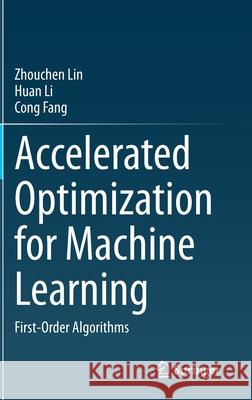Accelerated Optimization for Machine Learning: First-Order Algorithms » książka
topmenu
Accelerated Optimization for Machine Learning: First-Order Algorithms
ISBN-13: 9789811529092 / Angielski / Twarda / 2020 / 275 str.
Accelerated Optimization for Machine Learning: First-Order Algorithms
ISBN-13: 9789811529092 / Angielski / Twarda / 2020 / 275 str.
cena 603,81
(netto: 575,06 VAT: 5%)
Najniższa cena z 30 dni: 578,30
(netto: 575,06 VAT: 5%)
Najniższa cena z 30 dni: 578,30
Termin realizacji zamówienia:
ok. 16-18 dni roboczych.
ok. 16-18 dni roboczych.
Darmowa dostawa!
Kategorie:
Kategorie BISAC:
Wydawca:
Springer
Język:
Angielski
ISBN-13:
9789811529092
Rok wydania:
2020
Wydanie:
2020
Ilość stron:
275
Waga:
0.63 kg
Wymiary:
23.39 x 15.6 x 2.06
Oprawa:
Twarda
Wolumenów:
01
Dodatkowe informacje:
Wydanie ilustrowane











